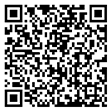Two national railway standards, such as Rail Transit Electric Traction Overhead Rigid Catenary, organized and prepared by the National Railway Administration Since April 1, 2024, one of the two standards has been newly formulated and one has been revised.
The Rail Transit Electric Traction Overhead Rigid Catenary (GB/T 43511-2023) specifies the application conditions, system composition and technical requirements, equipment and parts requirements, test methods, inspection rules, etc. of the rail transit electric traction overhead rigid catenary, which is applicable to the rail transit electric traction overhead rigid catenary with a running speed of 160 km/h or less.
Electric Connectors for Rail Transit Rolling Stock Part 3: Communication Control Connectors (GB/T 25022.3-2023) specifies the use environment, structural form, model, contact pair numbering, technical requirements, test methods, inspection rules, packaging, marking, transportation and storage of electrical communication control connectors at the end of rolling stock, It is applicable to the electric communication control connector at the end of locomotive and vehicle.












